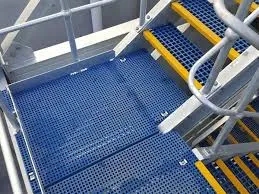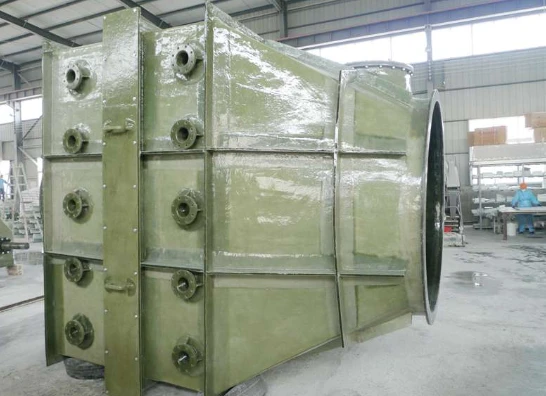
-
 Afrikaans
Afrikaans -
 Albanian
Albanian -
 Amharic
Amharic -
 Arabic
Arabic -
 Armenian
Armenian -
 Azerbaijani
Azerbaijani -
 Basque
Basque -
 Belarusian
Belarusian -
 Bengali
Bengali -
 Bosnian
Bosnian -
 Bulgarian
Bulgarian -
 Catalan
Catalan -
 Cebuano
Cebuano -
 China
China -
 China (Taiwan)
China (Taiwan) -
 Corsican
Corsican -
 Croatian
Croatian -
 Czech
Czech -
 Danish
Danish -
 Dutch
Dutch -
 English
English -
 Esperanto
Esperanto -
 Estonian
Estonian -
 Finnish
Finnish -
 French
French -
 Frisian
Frisian -
 Galician
Galician -
 Georgian
Georgian -
 German
German -
 Greek
Greek -
 Gujarati
Gujarati -
 Haitian Creole
Haitian Creole -
 hausa
hausa -
 hawaiian
hawaiian -
 Hebrew
Hebrew -
 Hindi
Hindi -
 Miao
Miao -
 Hungarian
Hungarian -
 Icelandic
Icelandic -
 igbo
igbo -
 Indonesian
Indonesian -
 irish
irish -
 Italian
Italian -
 Japanese
Japanese -
 Javanese
Javanese -
 Kannada
Kannada -
 kazakh
kazakh -
 Khmer
Khmer -
 Rwandese
Rwandese -
 Korean
Korean -
 Kurdish
Kurdish -
 Kyrgyz
Kyrgyz -
 Lao
Lao -
 Latin
Latin -
 Latvian
Latvian -
 Lithuanian
Lithuanian -
 Luxembourgish
Luxembourgish -
 Macedonian
Macedonian -
 Malgashi
Malgashi -
 Malay
Malay -
 Malayalam
Malayalam -
 Maltese
Maltese -
 Maori
Maori -
 Marathi
Marathi -
 Mongolian
Mongolian -
 Myanmar
Myanmar -
 Nepali
Nepali -
 Norwegian
Norwegian -
 Norwegian
Norwegian -
 Occitan
Occitan -
 Pashto
Pashto -
 Persian
Persian -
 Polish
Polish -
 Portuguese
Portuguese -
 Punjabi
Punjabi -
 Romanian
Romanian -
 Russian
Russian -
 Samoan
Samoan -
 Scottish Gaelic
Scottish Gaelic -
 Serbian
Serbian -
 Sesotho
Sesotho -
 Shona
Shona -
 Sindhi
Sindhi -
 Sinhala
Sinhala -
 Slovak
Slovak -
 Slovenian
Slovenian -
 Somali
Somali -
 Spanish
Spanish -
 Sundanese
Sundanese -
 Swahili
Swahili -
 Swedish
Swedish -
 Tagalog
Tagalog -
 Tajik
Tajik -
 Tamil
Tamil -
 Tatar
Tatar -
 Telugu
Telugu -
 Thai
Thai -
 Turkish
Turkish -
 Turkmen
Turkmen -
 Ukrainian
Ukrainian -
 Urdu
Urdu -
 Uighur
Uighur -
 Uzbek
Uzbek -
 Vietnamese
Vietnamese -
 Welsh
Welsh -
 Bantu
Bantu -
 Yiddish
Yiddish -
 Yoruba
Yoruba -
 Zulu
Zulu
Feb . 10, 2025 12:18
Back to list
Mandrels and Molds
Fiberglass Reinforced Plastic (FRP) piping systems have emerged as a preferred choice in various industries due to their robustness, reliability, and cost-effectiveness. Unlike traditional materials such as steel, FRP piping systems offer unique advantages that cater to the demanding needs of modern industries including chemical processing, oil and gas, water treatment, and marine applications.
The authoritative capability of FRP piping systems has been established through rigorous international certifications and standards compliance. Organizations such as the American Society for Testing and Materials (ASTM) and the American Water Works Association (AWWA) endorse FRP pipes, reflecting their reliability and safety. These certifications also serve as testament to the trustworthiness of FRP systems, providing assurance to businesses relying on them for critical operations. In addition to the technical benefits, FRP piping systems also present an environmentally friendly profile. The manufacturing process of FRP results in a lower carbon footprint compared to traditional metal pipes, aligning with global initiatives for sustainable industrial practices. Furthermore, FRP materials are recyclable, offering an added advantage in waste reduction and resource conservation. Despite their numerous advantages, selecting the right FRP piping system requires insightful expertise. It is vital to conduct a comprehensive assessment of the operational environment, chemical compatibility, and mechanical demands. Consulting with experienced professionals and manufacturers can provide critical insights into the best practices for leveraging FRP systems' full potential. In conclusion, FRP piping systems represent an advanced solution for industries seeking reliable, cost-effective, and sustainable piping solutions. Their combination of lightweight construction, corrosion resistance, and versatility in design from an expert and authoritative standpoint fulfills the operational needs while ensuring a trustworthy investment. As industries continue to evolve and demand higher efficiencies, FRP piping systems are well-positioned to address these challenges with unrivaled expertise and durability.


The authoritative capability of FRP piping systems has been established through rigorous international certifications and standards compliance. Organizations such as the American Society for Testing and Materials (ASTM) and the American Water Works Association (AWWA) endorse FRP pipes, reflecting their reliability and safety. These certifications also serve as testament to the trustworthiness of FRP systems, providing assurance to businesses relying on them for critical operations. In addition to the technical benefits, FRP piping systems also present an environmentally friendly profile. The manufacturing process of FRP results in a lower carbon footprint compared to traditional metal pipes, aligning with global initiatives for sustainable industrial practices. Furthermore, FRP materials are recyclable, offering an added advantage in waste reduction and resource conservation. Despite their numerous advantages, selecting the right FRP piping system requires insightful expertise. It is vital to conduct a comprehensive assessment of the operational environment, chemical compatibility, and mechanical demands. Consulting with experienced professionals and manufacturers can provide critical insights into the best practices for leveraging FRP systems' full potential. In conclusion, FRP piping systems represent an advanced solution for industries seeking reliable, cost-effective, and sustainable piping solutions. Their combination of lightweight construction, corrosion resistance, and versatility in design from an expert and authoritative standpoint fulfills the operational needs while ensuring a trustworthy investment. As industries continue to evolve and demand higher efficiencies, FRP piping systems are well-positioned to address these challenges with unrivaled expertise and durability.
Related Products









